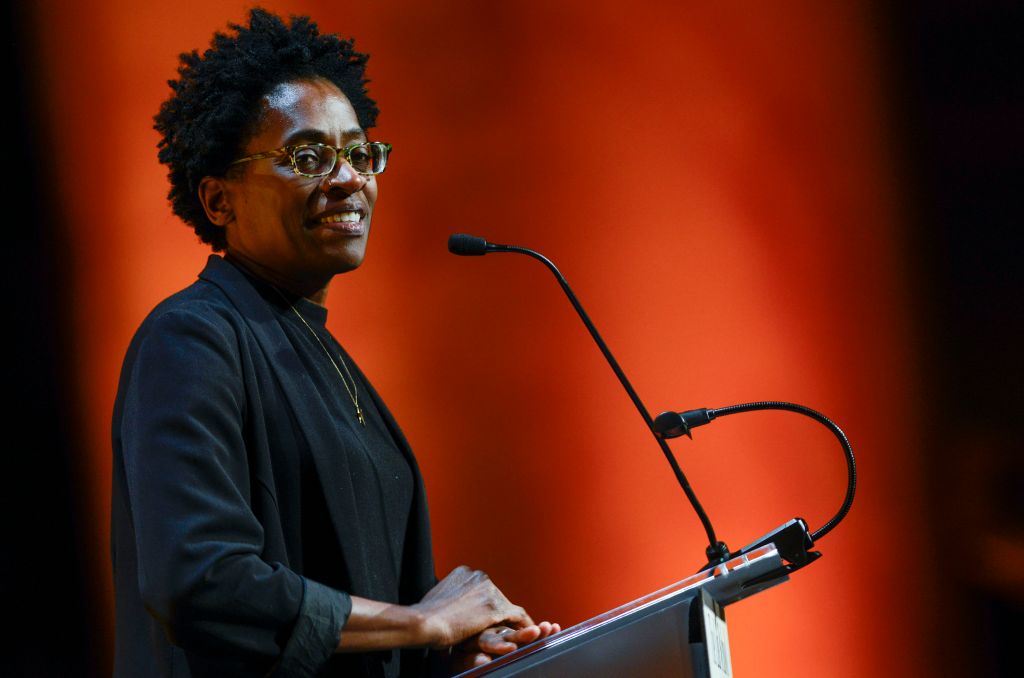
Source: Leigh Vogel / Getty
There’s no denying the strides both Jacqueline Woodson and Tracy K. Smith have made in the last year. This year, Woodson—along with penning one of the most important profiles of the year so far (hi, Lena)—became the National Ambassador for Young People’s Literature. Meanwhile, Smith began her second year as poet laureate of the United States. The New York Times caught up with both wordsmiths for National Poetry Month, and the conversation was nothing short of inspiring. Check out some of our favorite moments below, then head to The Times to read it in its entirety.
On How They Make an Impact in the Black Community
Jacqueline Woodson: “I’m going to Alabama, I’m going to Mississippi, I’m going to Texas and having conversations, and then figuring out how they can continue the conversation once I’m gone. I’ve been going to prisons and detention centers in underserved communities where people haven’t met authors, so I can talk to them about the power of reading, show them that when we have these conversations about books, we’re changed by them. I have this idea that many people think books are ‘not for them.’ Access to them has been denied in a sense to certain classes, certain races. Sadly.”
Tracy K. Smith: “I’m going to community centers, libraries, rehab centers. I was in New Mexico and South Carolina, and there are about six more trips. I’m trying to figure out how to have the conversation we have about poetry at book festivals or readings, but in the rural and central parts of this country. It’s been beautiful. I have this belief that we are so vulnerable when we open ourselves up to literature. We’re reminded of these real parts of ourselves.”
On Why Kids Love Poetry More Than Adults
Smith: “I have this feeling it gets spooked out of us around the time we start feeling beholden to tests and performances. I think the way poems are taught to high school students is completely counterintuitive; it sets up this sense of being the poem’s adversary. The poem is sort of sneakily trying to outsmart you. Whereas children live in this sense of perpetual metaphor. We even use song and verse to teach kids. And then there comes a time when we somehow estrange them from that, without wanting to, perhaps.”
On Race and Black Girlhood in Literature
Woodson: “Growing up I felt so ashamed and guilty, but no one was talking about it as triumph, right? And as our country’s negative history, not our negative history. Even the way we said ‘slave’ instead of ‘enslaved.’ ‘Enslaved’ takes the onus off us. Then the older I got, the more I understood our history and the grace of our survival. Thank goodness for Mildred Taylor and Virginia Hamilton and Nikki Giovanni, the writers who came along and started putting black girlhood on the page in a way that felt relevant to me. And the fact that they’d once been Black girls made it even more important.”
Book Ends is CASSIUS’ hub for all things lit(erature). Check back each week for book-related content.
















